Lauded overseas, New Zealand Prime Minister Jacinda Ardern is in trouble back home
You would never know it from the glowing headlines she gets all around the world, but back home in New Zealand, Jacinda Ardern is in trouble.
News
Don't miss out on the headlines from News. Followed categories will be added to My News.
Jacinda Ardern is in trouble.
You would never know it from the glowing headlines she enjoys around the world, or her calm, confident condemnation of Australia’s deportation policy to Scott Morrison’s face yesterday, but New Zealand’s Prime Minister is under serious pressure back home.
Far from being an overwhelming favourite to win re-election on September 19, Ms Ardern is at risk of losing power after a single term in office.
RELATED: New Zealand election scheduled for September 19
RELATED: Jacinda slams Australia to Scott Morrison’s face
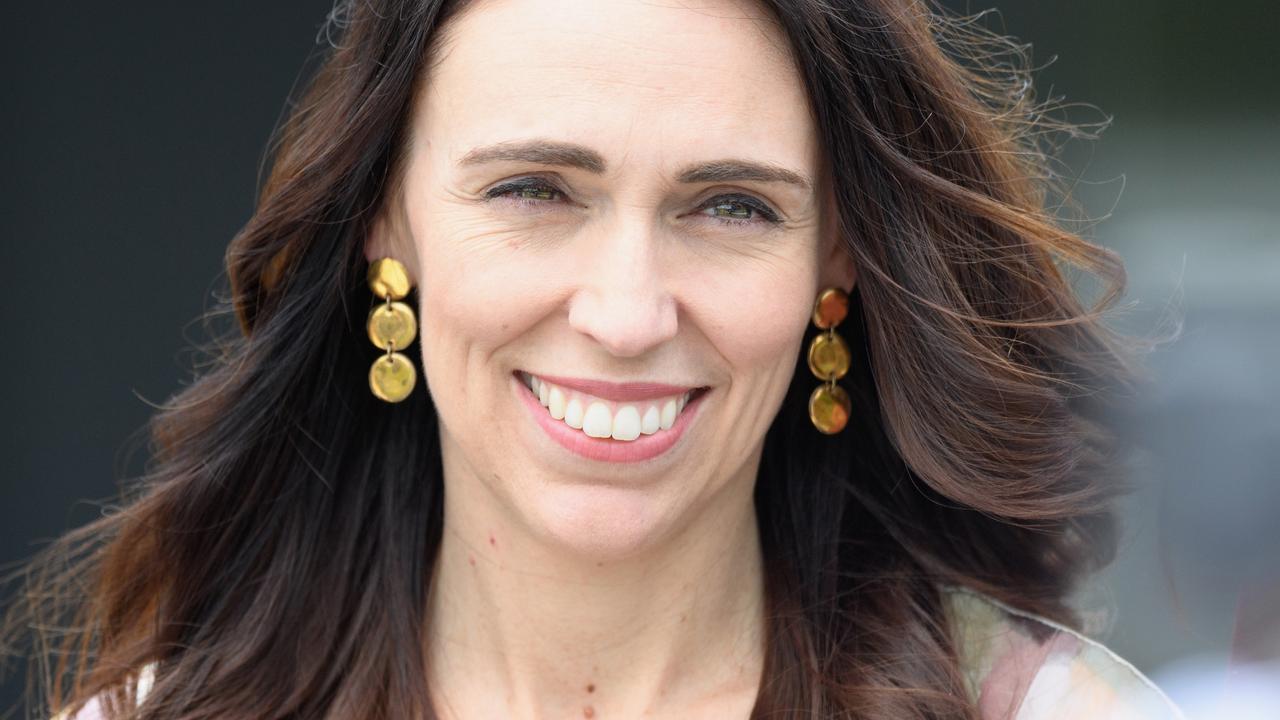
THE WORLD’S PRIME MINISTER
To most people outside New Zealand, that is an utterly confounding prospect.
Ms Ardern is widely admired overseas for her down-to-earth manner, progressive values, and the calm, decisive leadership she showed in the wake of two horrifying national disasters.
After the Christchurch terror attack last March, for example, she impressed much of the world with her empathy for New Zealand’s Muslim community, and her swift move to overhaul New Zealand’s lax gun laws.
It was no easy thing. Other prime ministers had tried and failed to implement gun reform in previous years. She got it done.
Even before that, Ms Ardern stood out on the global stage as a young, compassionate, female leader – the polar opposite of figures like Donald Trump, Vladimir Putin, or whichever other old, cranky, conservative man she happened to be juxtaposed with.
She has graced the covers of magazines, including the issue of British Vogue guest edited by Meghan Markle; starred on late night TV in the United States; spoken forcefully at the United Nations; mounted a compelling case for more empathy from political leaders; and inspired parents by deftly juggling pregnancy and then a baby while in office.
Forbes has ranked her as the 38th most powerful woman in the world, ahead of Queen Elizabeth, Ivanka Trump and a boatload of celebrities.
And more than a few Australians have openly wished she could be our prime minister too.
Not bad for the leader of a tiny country with so little global influence.
In recent weeks though, even the most positive coverage of Ms Ardern has started to include a small asterisk.
For example, Ms Ardern appeared on the cover of Time Magazine’s international edition this month. Inside was yet another glowing profile, which praised the “strength and sanity” of her leadership.
Then, near the bottom, came this line.
“It’s hard to find anyone who doesn’t admire her authenticity and compassion, but there’s a sense among her supporters that she may have bitten off more than she can chew, and among her opponents that her government has failed on most of its promises.”
Back in New Zealand, Ms Ardern’s constituents are bitterly divided.
RELATED: New Zealand swiftly reforms gun laws after terror attack
RELATED: Ardern says she ‘does not understand’ America’s gun culture
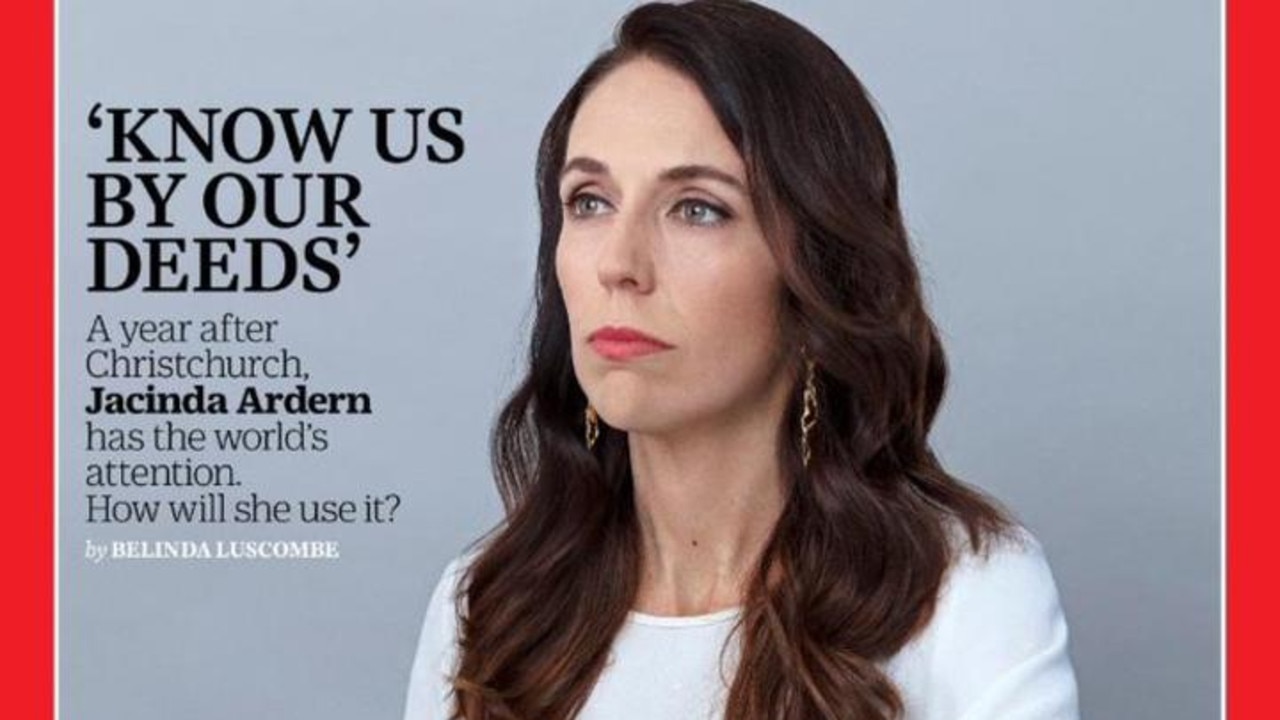
ON A KNIFE EDGE
To comprehend her predicament, you first need to understand the precarious position her government is in. For that, we have to look back at the 2017 election.
It’s easy to forget the contentious circumstances of Ms Ardern’s victory.
She became leader of the opposition Labour Party just seven weeks before election day, and immediately rejuvenated its fortunes against the incumbent National government. But as the results rolled in, she appeared to have fallen short.
Labour won far fewer votes and seats than National, claiming 37 per cent of the popular vote compared to its 44 per cent, and 46 seats to 56.
Both parties were short of the 61 seats they required for a majority.
That gave two minor parties the balance of power. The Greens, naturally, supported Labour to form government, boosting its total to 54 seats. Still not enough.
And so New Zealand First – think of it as the Kiwi equivalent of One Nation – got to make the final decision. It had enough seats to push either major party over the line.
NZ First’s charismatic and compulsively controversial leader, Winston Peters, took a whole month to make up his mind. Eventually, he decided to support Ms Ardern.
In return, she gave Mr Peters two of the most prestigious roles in her Cabinet, making him Deputy Prime Minister and Foreign Minister.
The numbers in parliament have not changed since. Ms Ardern is still relying on NZ First to stay in power, and that fact is at the core of her political nightmare.
RELATED: New Zealand PM’s baby watches her speak at United Nations
RELATED: Jacinda’s extremely relatable post about parenting
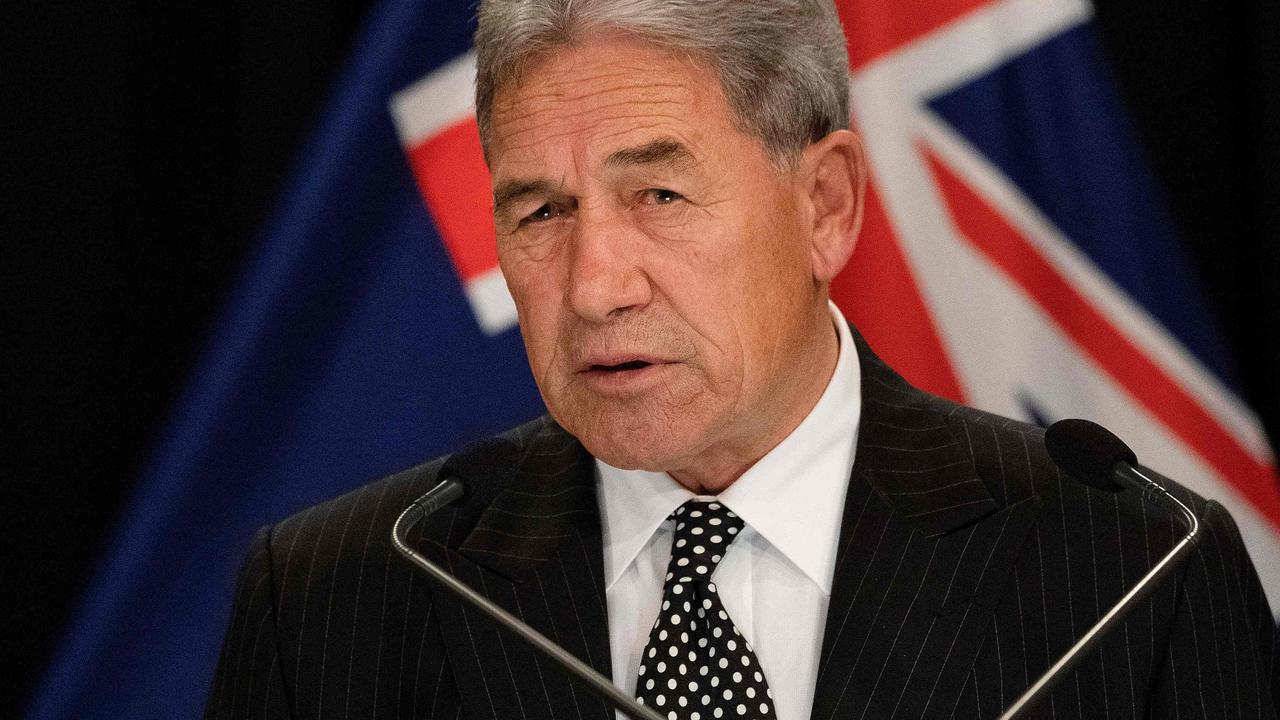
HELD HOSTAGE
We called Mr Peters a “controversial” figure before. Most of the time, that merely means he has a habit of saying questionable things, or taking problematic policy positions.
It’s more than that at the moment. Mr Peters and his party have become tainted by a political donations scandal.
Under New Zealand’s electoral laws, donations above a threshold of $15,000 have to be declared. The short version of this scandal is that NZ First appears to have flouted those laws, using an entity called the New Zealand First Foundation – allegedly a “slush fund” – to hide a number of large donations from wealthy New Zealanders.
To pick one example, businesses owned by the country’s richest man, Graeme Hart, gave the New Zealand First Foundation $29,990 in a single day – but split the funds into two separate donations, each just $5 below the threshold at which they would need to be declared.
Mr Peters originally denied any knowledge of the donations, and now insists they did not violate the law.
Earlier this month, however, the Electoral Commission issued a statement saying at least some of the donations should have been declared. It referred the matter to New Zealand Police, who then sent it to the Serious Fraud Office, which investigates financial misconduct and corruption.
So, how does any of this affect Ms Ardern? Labour has not been implicated in the scandal, after all.
It goes back to the political mathematics.
The Prime Minister needs NZ First’s support to maintain her coalition’s majority. If she were to stand down Mr Peters over the scandal, as critics have urged her to do, it could conceivably lead to the fall of her government and a snap election.
He is, in essence, able to hold her leadership hostage.
Chris Trotter, a veteran writer on New Zealand politics, put Ms Ardern’s dilemma pretty succinctly earlier this month.
“If she intends to remain in her current job until September 19, then the support of Winston Peters and NZ First is essential. On the other hand, if she intends to remain Prime Minister after September 19, then Labour’s relationship with NZ First needs to change, and quickly,” Trotter wrote.
Ms Ardern has tried to distance herself from the scandal while simultaneously avoiding any condemnation of her Deputy Prime Minister. It hasn’t worked.
RELATED: The meteoric rise of Jacinda Ardern
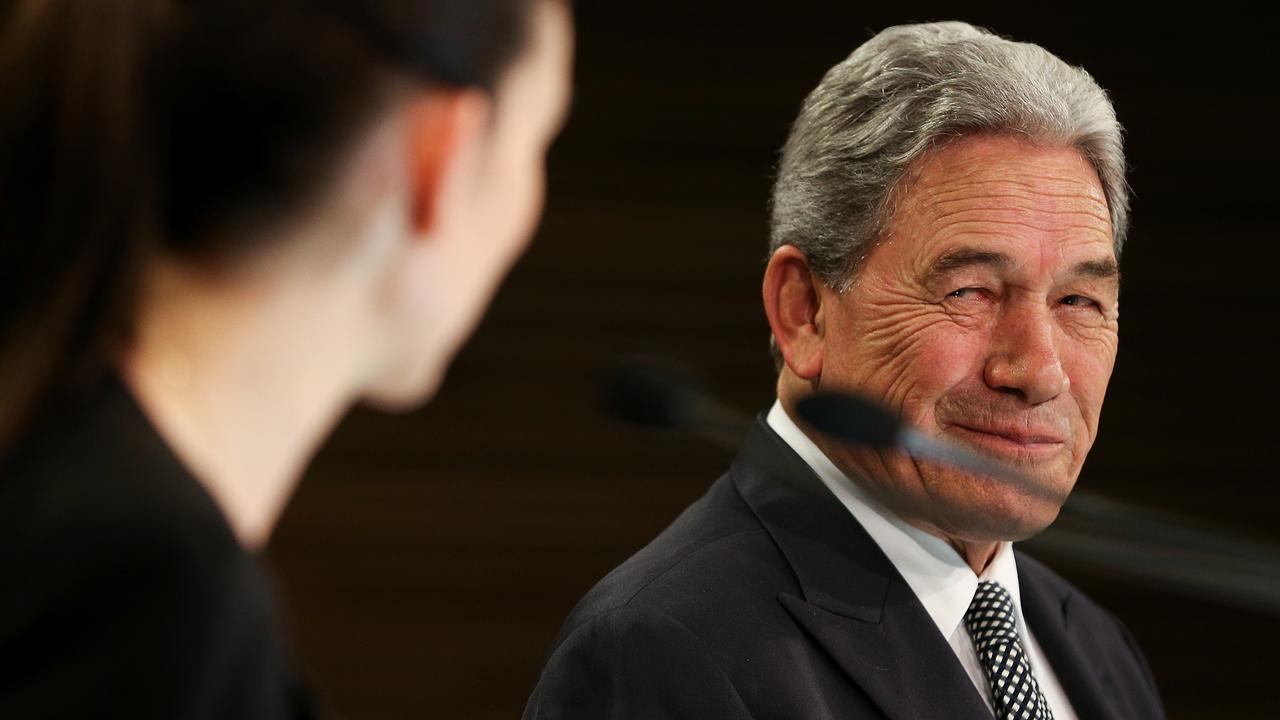
WEAK EXCUSE
Ms Ardern has not exactly hidden from scrutiny. She has repeatedly fronted up and spoken to the media in recent weeks. The problem is that she’s had nothing of any substance to say.
“In my mind, we need to apply natural justice here. I am awaiting the outcome of the Serious Fraud Office investigation, and that’s the right thing to do,” she told reporters at a press conference earlier this month.
The Prime Minister has refused to say what she will do if the investigation finds NZ First engaged in wrongdoing.
And she has argued that any misconduct by the minor party is a matter for Mr Peters alone – not for her.
That position did not hold up well during a series of interviews last Monday, particularly on Radio NZ, where Ms Ardern was grilled mercilessly by host Susie Ferguson.
“They are matters for you. This is your Deputy Prime Minister,” Ferguson said.
“Yes, indeed, I’m the Prime Minister of the government. I do not run three separate political parties. So I don’t think it’s unfair or unreasonable to say these are matters for NZ First. It’s not for me,” Ms Ardern responded.
Ferguson asked whether Mr Peters had complied with the Cabinet Manual, which is New Zealand’s version of Australia’s Ministerial Standards.
The manual requires ministers to “act lawfully and behave in a way that upholds, and is seen to uphold, the highest ethical standards”.
“Is Winston Peters upholding the highest ethical standards, as outlined in the Cabinet Manual?” Ferguson asked.
“This is not relevant to the role he plays as Minister of Foreign Affairs,” Ms Ardern said.
“Minister of Foreign Affairs – he’s Deputy Prime Minister. He’s a member of the Cabinet. I’m asking you directly about the Cabinet Manual,” said Ferguson.
“You are, and no, he maintains the role he needs to maintain appropriately, as Minister for Foreign Affairs. You’re asking questions of him as leader of a political party,” said Ms Ardern.
“No I’m not. I’m asking questions of him as a member of the Cabinet that you run,” Ferguson shot back, growing increasingly incredulous.
“Have you had no conversations with Winston Peters since this story broke about this? You have no clarity about this?”
“Susie I can hear that this is obviously something very personal for Radio NZ, but these aren’t matters that I have any responsibility for. I’m the leader of the Labour Party. I have nothing to do with it. I’m not going to stand here and explain it or defend it. It’s not for me,” Ms Ardern insisted.
“So despite that fact that he’s in your Cabinet, despite the fact that he’s the Deputy Prime Minister, he stands in for you when you’re not here – this is not a matter for you?” Ferguson asked, trying one last time.
“I’ve already made my position on this utterly clear. This is not a matter for me,” the Prime Minister said.
There were similar interviews with other media outlets, including TV NZ and Newstalk ZB. Ms Ardern faced the same questions and gave the same answers.
Incidentally, this whole situation is eerily familiar. In 2008, Mr Peters was serving as foreign minister in the government of Labour prime minister Helen Clark. The Serious Fraud Office revealed it was investigating donations to his party.
There is one key difference between the two scandals though. Ms Clark, unlike Ms Ardern, stood down Mr Peters while the investigation took place.
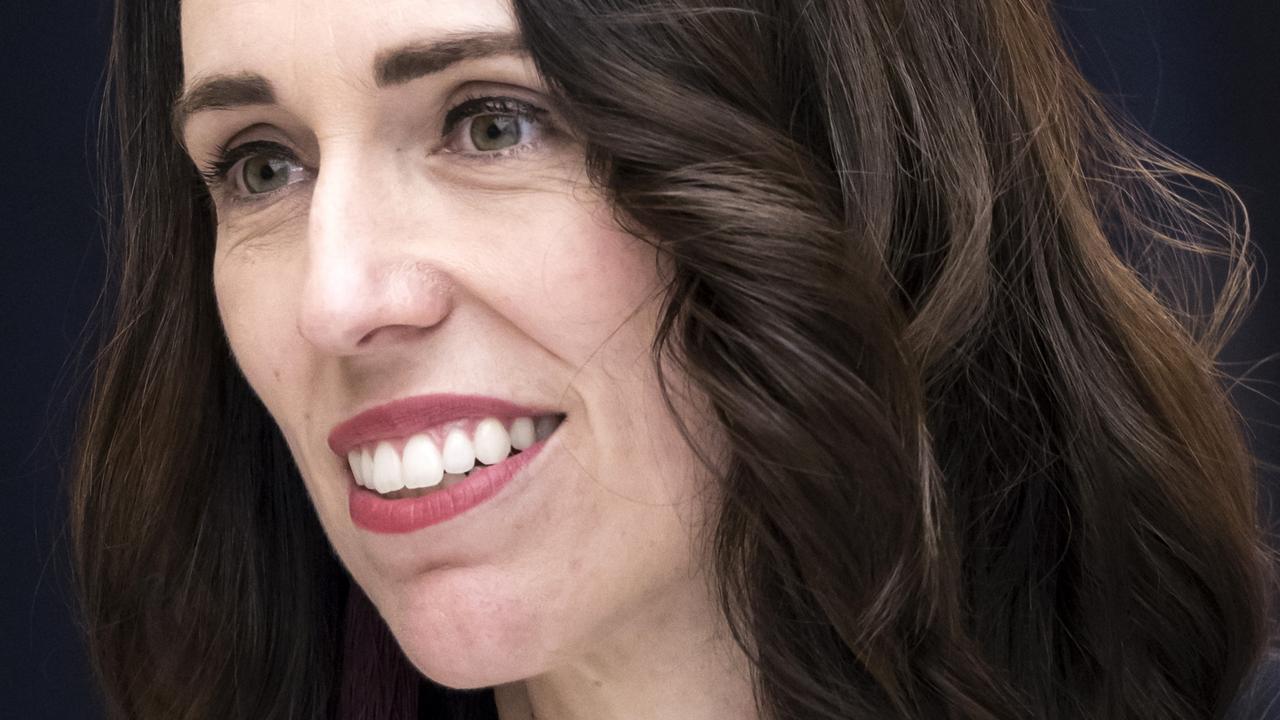
‘SHE FAILS MISERABLY’
Ms Ardern is still overwhelmingly New Zealanders’ preferred prime minister. Polls typically show her beating National leader Simon Bridges by about 30 percentage points.
But in parts of the New Zealand media, the once immovable gloss has come off her leadership.
“It is blindingly obvious why Ardern is so blind to Peters’ actions. He is not the kind of man to take a telling off sitting down, and it would probably all get messier as Peter extracted some kind of utu for her daring to criticise him,” Stuff.co.nz columnist Henry Cooke wrote this month.
Utu is a Maori concept meaning payment or reciprocation. In this context, you could interpret it as something more like payback.
“But she is the leader of this government, and of a party that is vastly larger in both power and popularity. Her words set the standard of behaviour for ministers. She is, in this sense, the most powerful political pundit we have. It’s well past time she found that voice,” Cooke continued.
TVNZ’s John Armstrong was a little blunter, accusing Ms Ardern of being “gutless”, displaying a “staggering” failure of leadership and having “all the backbone of a spineless jellyfish”.
“Rarely has a current prime minister looked quite so feeble,” said Armstrong.
“Peters has clearly concluded that he is somehow exempt from the rules covering the disclosure of the source of political donations. The arrogance is breathtaking.
“Ardern needs to read the riot act to Peters, and not just to remind him of his constitutional obligations. Failure to do so makes her look weak. In dragging her down, he is dragging Labour down too.”
The donations scandal is amplifying other criticisms of the Labour government, most of which relate to Ms Ardern overpromising before the election and underdelivering after it.
She promised, for example, to build 100,000 new, affordable homes in a decade. After almost three years, only a few hundred have been built, and the ambitious target has been ditched.
The Prime Minister also abandoned her push to pass a capital gains tax – a longtime goal of the Labour Party – when NZ First refused to support it.
“I just couldn’t get the numbers,” she admitted last April.
And her attempt to reduce the number of children in poverty by giving all families with kids extra money has not produced results.
These setbacks have rarely been mentioned by overseas media, though we should note the Time profile this month did bring up some of them. Among Ms Ardern’s domestic critics, that relative silence is a source of frustration.
Earlier this week, morning radio host Duncan Garner argued the world’s view of his country’s Prime Minister was “shallow” and “like kids reading a picture book”.
“They don’t see the detail,” Garner said.
“Yes, overseas she’s regarded highly. New York, regarded highly. New Plymouth, I’m not so sure.”
For those of you who haven’t had the pleasure of holidaying there, New Plymouth is a city on the west coast of New Zealand’s north island.
Garner accused the Prime Minister of avoiding “tough” domestic issues, Mr Peters’ conduct foremost among them.
“If he’s broken electoral law, how can she have him propping up her government? I don’t think she can,” he said.
“She dodges questions and doesn’t say what she really thinks – if she thinks anything at all. Because she’s just absent on the tough stuff.”
That isn’t a consensus view in Garner’s radio studio, let alone New Zealand as a whole. His comments sparked a disagreement between his co-hosts, broadcaster Amanda Gillies and former international cricketer Mark Richardson.
“Empathy is only part of the job of running the country. On empathy, she passes with flying colours. On actually running the country, well, she fails miserably. And they don’t see that overseas,” said Richardson.
He called Ms Ardern’s administration “the most ineffectual and inept government this country’s ever seen”.
“The sky hasn’t fallen in New Zealand. We’re OK,” Gillies countered.
It’s the same argument New Zealand’s voters will have with each other in the lead-up to September’s election.
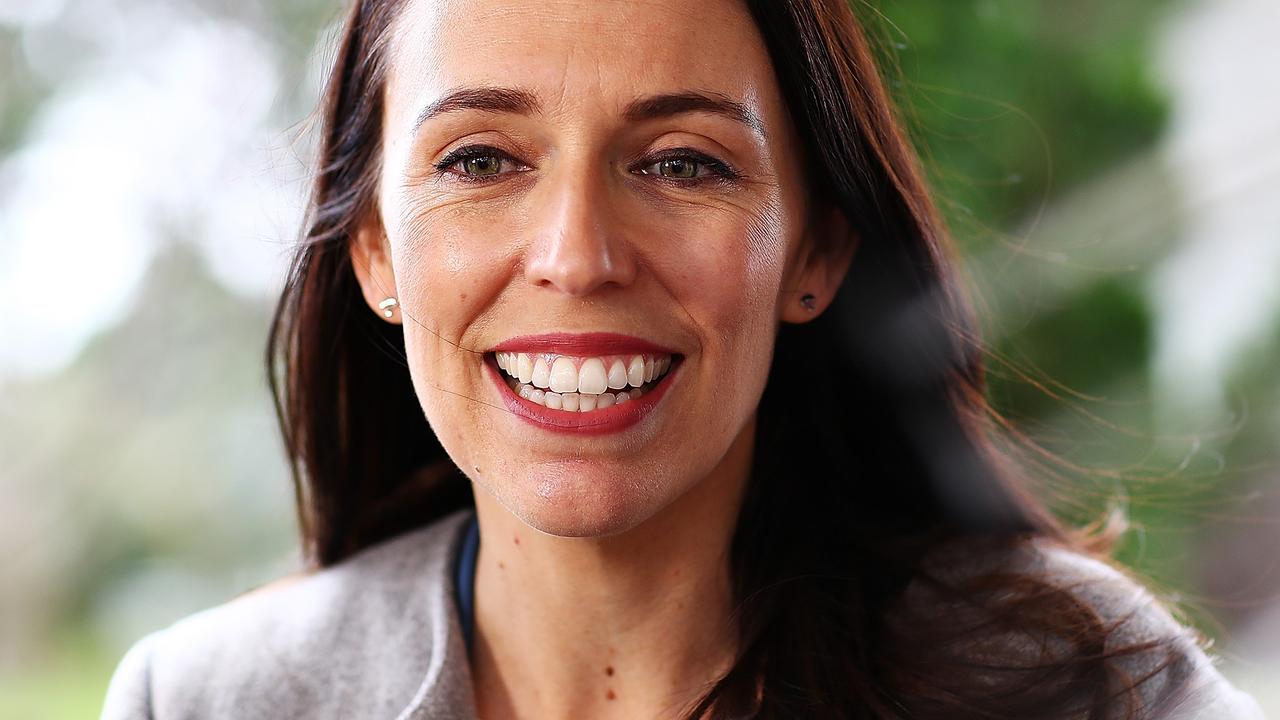
A ONE-TERM PRIME MINISTER?
As that election approaches, Ms Ardern finds herself in an increasingly perilous position.
Polling is fairly sparse, but the data we do have indicates the race is tight.
A 1 News Colmar Brunton survey from mid-February found National leading with 46 per cent of the vote, Ms Ardern’s Labour Party with 41 per cent, the Greens at 5 per cent and NZ First lagging at 3 per cent.
Another, published by Newshub Reid Research at the start of the month, had National in front with 43.3 per cent, Labour close behind with 42.5 per cent, the Greens at 5.6 per cent and NZ First 3.6 per cent.
Those numbers aren’t awful for Labour. They are bad for the minor parties though, and that could prove to be the crucial factor.
In New Zealand’s electoral system, there are two ways to get into parliament. You can either win a specific electorate, or your party can win a high enough share of the popular vote to elect people from its “list”.
Each party needs to hit a minimum threshold of 5 per cent to get list members elected. In 2017, NZ First and the Greens both passed it easily, winning nine and eight seats respectively. But neither party won an electorate.
These polls show Mr Peters’ party is currently below the threshold, and the Greens are dangerously close to slipping under it too.
Should that happen on election day, both of Ms Ardern’s coalition partners will be wiped out, making it extremely difficult for her to form government.
Ms Ardern’s popularity overseas is unshakeable. On September 19, only her reputation at home will matter.







